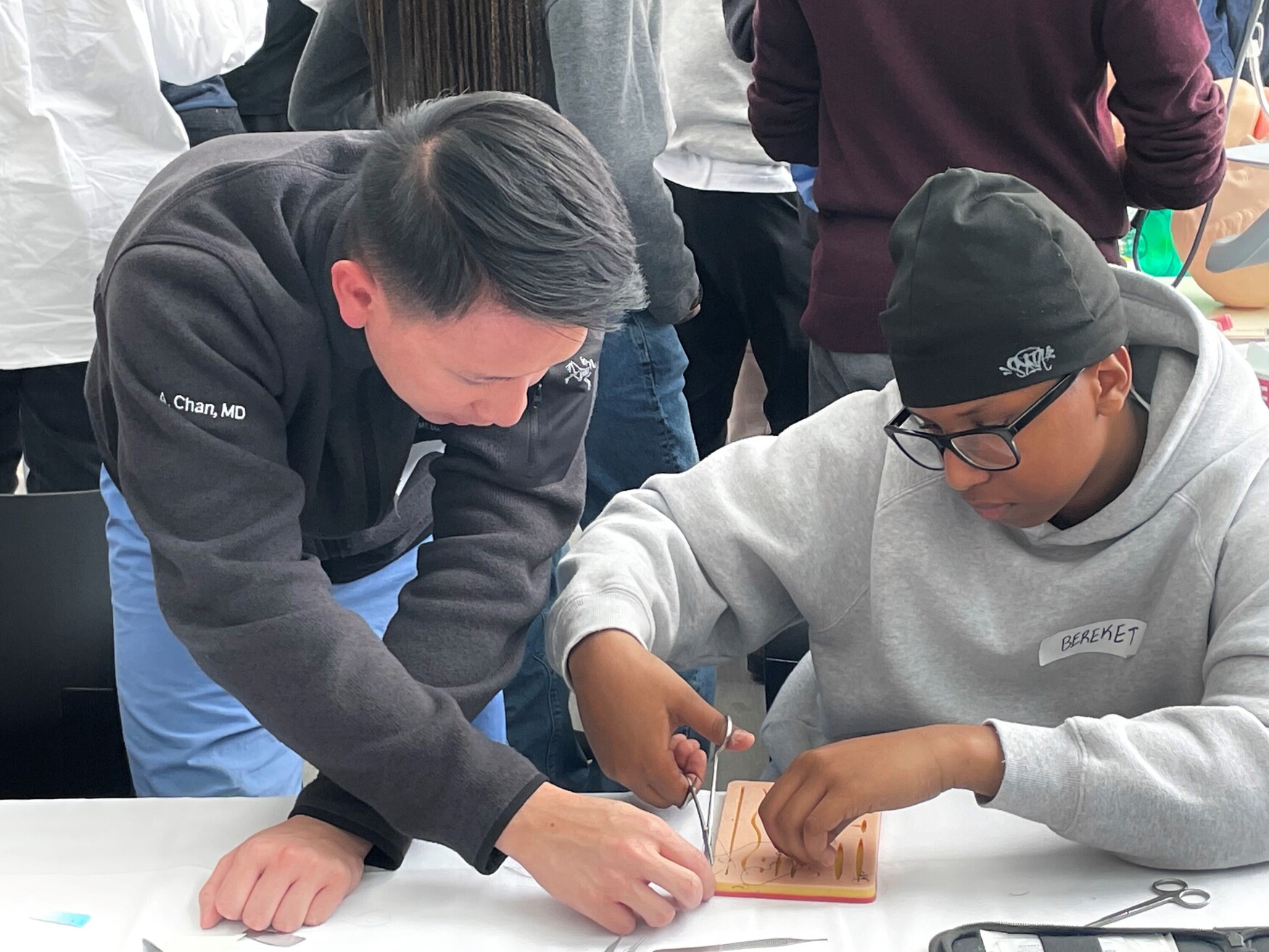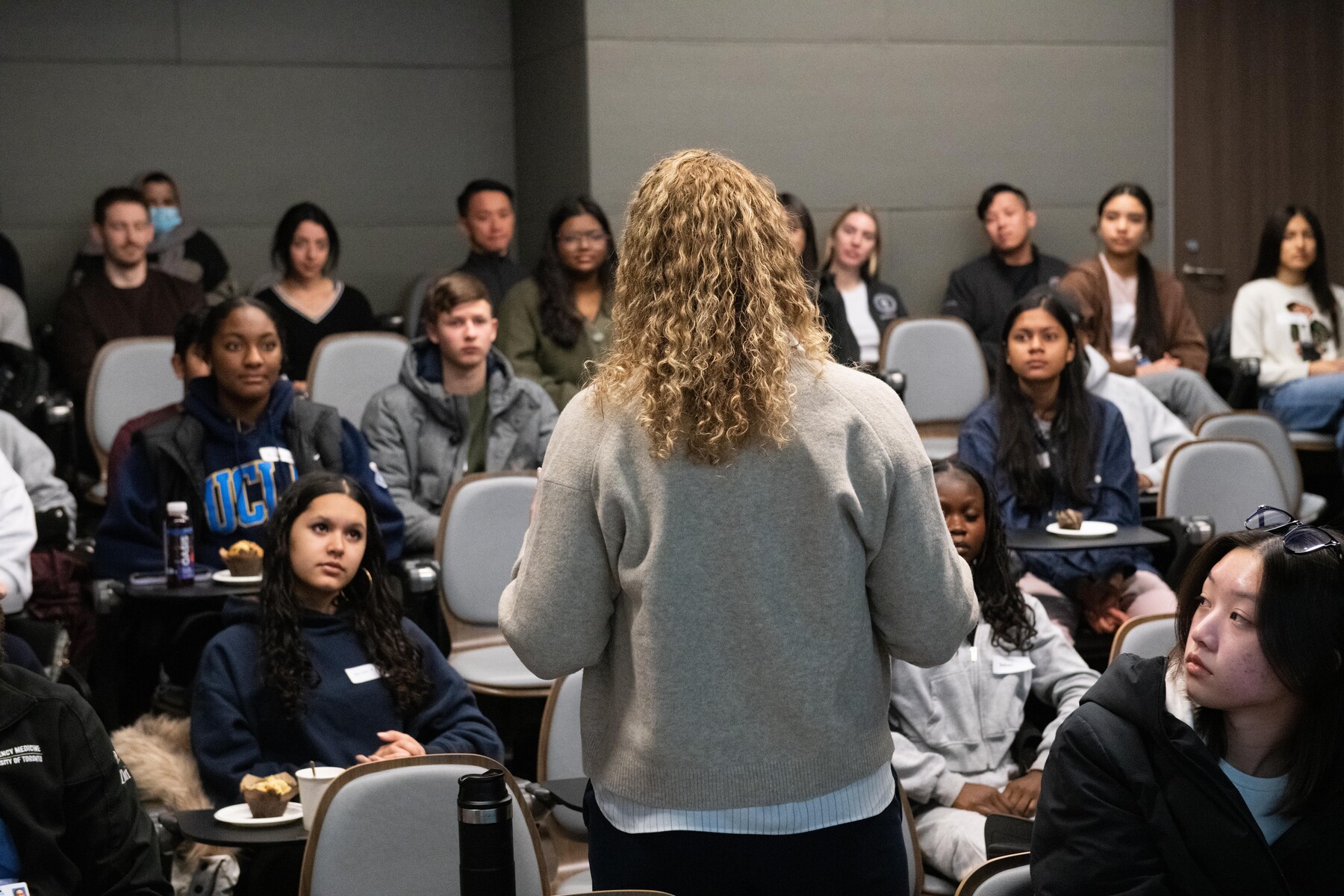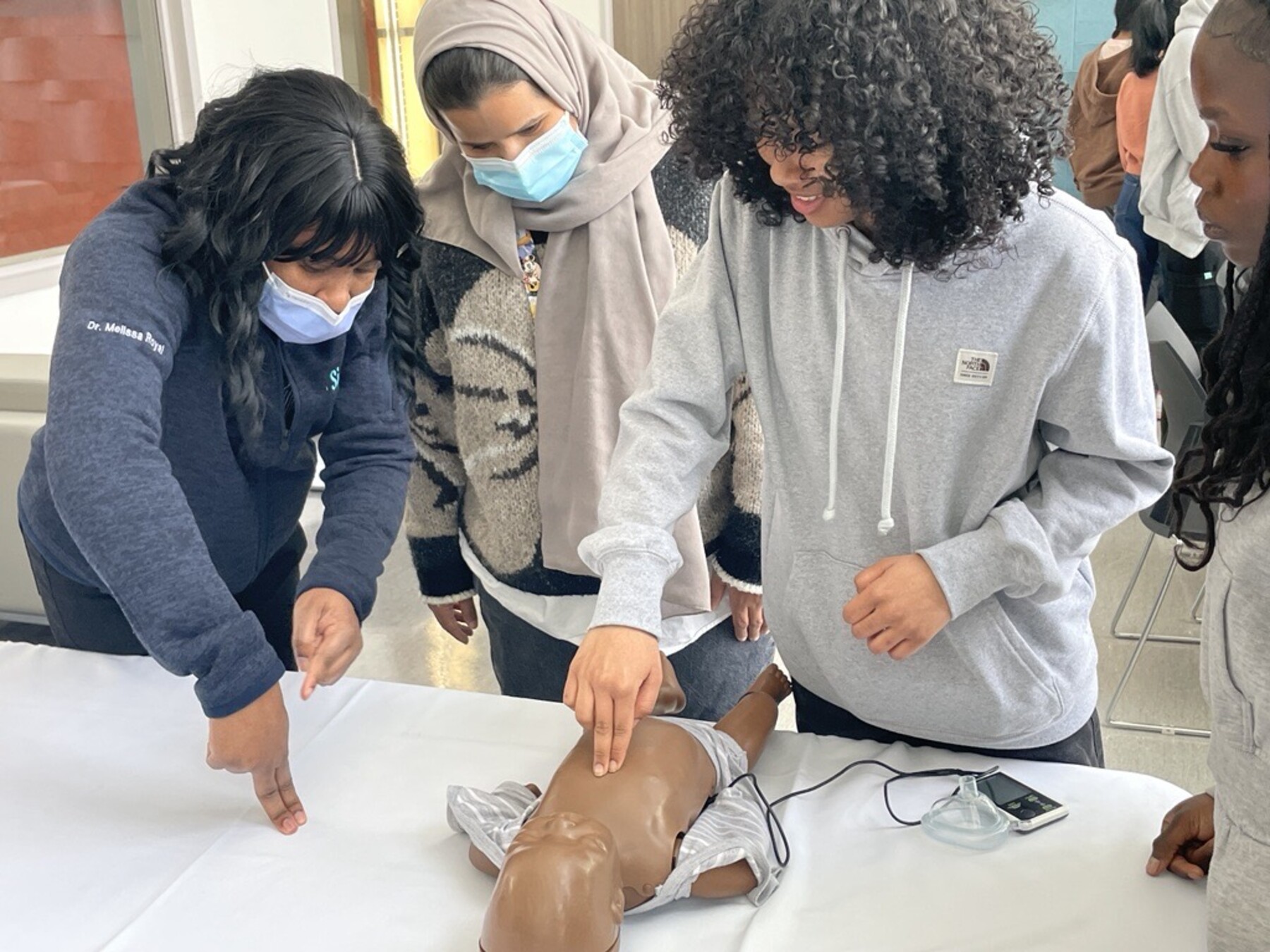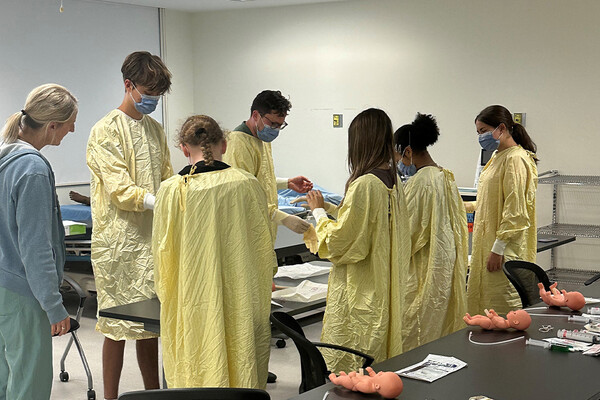Mobile Menu
- Education
- Research
-
Students
- High School Outreach
- Undergraduate & Beyond: Community of Support
- Current Students
- Faculty & Staff
- Alumni
- News & Events
- Giving
- About

Bereket Yohannes was hoping for unique insights into emergency medicine when he signed up for an emergency room ‘discovery day’ at Sunnybrook Health Sciences Centre. What he came away with was more impactful.
“I had not considered a career in emergency medicine until I was inspired by what we learned,” says Yohannes.
The tenth-grade student, along with 26 others, took part in the event through the University of Toronto’s MedLinx program on a snowy PD day in February.
MedLinx is run by the Office of Access and Outreach (OAO) at U of T’s Temerty Faculty of Medicine, to support high school students from underrepresented communities who want to explore careers in health care.
Between November and April, participants gain real-world experience in health care through mentorship, academic workshops and hands-on activities such as the ER discovery day, one of three events running that day.
The day was conceived by Saswata Deb, an emergency physician at Sunnybrook, and was a collaboration among faculty and staff in Sunnybrook’s emergency department, Sunnybrook’s Presidential Anti-racism Taskforce, U of T emergency residents and fellows, and Temerty Medicine’s Office of Access and Outreach.
“I always wanted to be able to reach out to students who may be facing barriers and show them that it is possible to succeed. It is possible to do well in health care,” says Deb, who is also an assistant professor in Temerty Medicine’s division of emergency medicine, department of family and community medicine. “I wanted to show them that there are many career options in health care — beyond just doctors and nurses.”

"We knew the event had great potential," says, Dionne Banton, outreach coordinator for the OAO, "but the incredible response from students in the Medlinx program exceeded our expectations.”
The day began with a behind-the-scenes tour of Sunnybrook’s emergency department, the largest trauma centre in Canada. Students learned how patients are triaged into different areas, visited the world-class trauma bays and heard about some of the challenges and highlights of working in an emergency department today.
A panel discussion followed during which health-care professionals from a variety of disciplines — including social work, physiotherapy, occupational therapy in addition to physicians, nurses and hospital administrators — inspired the students with stories from their personal and professional journeys.
But inspiration was just one goal of the day. Equipping the participants with emergency skills they could take back to their communities was another. To that end, the afternoon was devoted to hands-on skills development.
“When they leave not only will they be inspired, but they’ll have some lifesaving skills they can use,” says Deb.

Led by faculty from Sunnybrook’s emergency department and U of T emergency medicine residents and fellows, students circulated through a series of stations where they learned skills such as CPR, suturing, intubation, how to stop a massive bleed and how to operate an ultrasound machine.
“I had fun talking to the residents and left the hospital reconsidering emergency medicine as an option,” says Yohannes.
Capped at 30 participants, the ER discovery day initially had interest from over 70 MedLinx students. “Our hope is to expand it next year, to have more students and the resources to support their learning,” says Deb.

